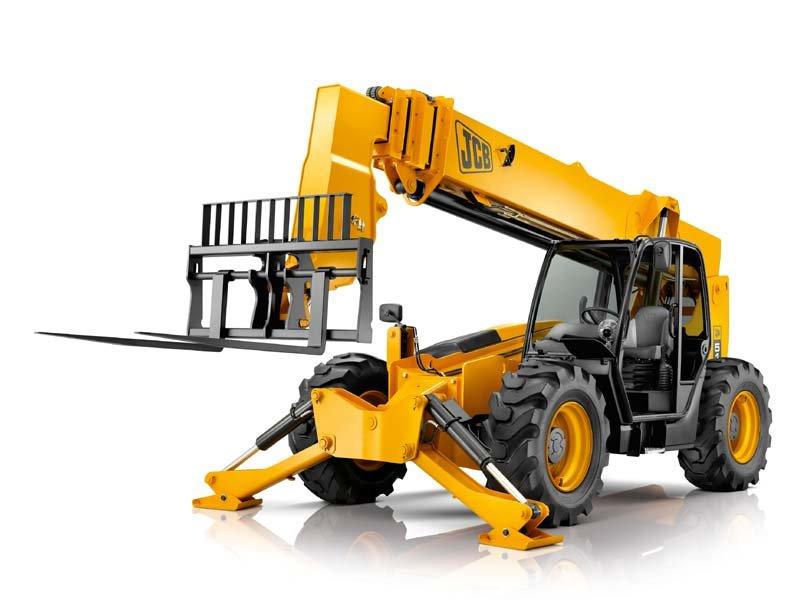Heavy Equipment Rental: Huge Machinery for Any Type Of Construction Task
Heavy Equipment Rental: Huge Machinery for Any Type Of Construction Task
Blog Article
Maximize Your Budget Plan by Comprehending the Costs Connected With Building And Construction Devices Rentals
Understanding the complete range of expenses associated with building and construction devices leasings is important for maximizing your spending plan. While the preliminary rental charge might appear simple, numerous added costs-- such as transport, fuel surcharges, and upkeep-- can rapidly accumulate, influencing your financial preparation. Being conscious of various fees and the complexities of rental arrangements can help prevent unanticipated economic burdens. What techniques can be used to effectively handle these costs and make sure a more effective rental experience?
Summary of Rental Prices
When thinking about construction tools leasings, understanding the linked costs is vital for efficient budgeting and task planning. Rental prices can vary significantly based upon numerous variables, including devices kind, duration of service, and place. The initial rental fee often shows the devices's market need and its connected functional abilities, affecting the general cost.
Along with the base rental rate, secondary costs may emerge, such as transportation costs, gas surcharges, and maintenance costs. It is necessary to represent these additional costs to properly assess the overall expense of renting tools. Furthermore, the rental period can affect rates; longer rentals may get approved for discounted rates, while short-term leasings could incur higher everyday costs.

Failure of Rental Rates
A detailed understanding of rental prices is necessary for specialists and job managers aiming to optimize their budget plans. Rental rates for construction tools typically are composed of numerous parts, consisting of base rates, time-based charges, and usage costs.
Base prices are the core charges related to the service of the tools, commonly figured out by the type and size of the machinery. These prices can vary considerably, influenced by variables such as devices demand, accessibility, and regional market patterns. Time-based charges, which might be daily, weekly, or monthly, offer to suit different project timelines and rental periods.
Furthermore, rental rates might consist of use charges, which are relevant when devices is made use of beyond a specified limit, guaranteeing that the rental business can represent damage. Seasonal need changes can also impact rental rates, with peak building and construction seasons normally commanding greater prices.
In addition, comprehending the rental firm's policies regarding upkeep and insurance can give further understanding into the total cost framework. By analyzing these elements, contractors can make educated choices, ensuring the option of rental equipment lines up with both task requirements and budget plan constraints.
Added Fees to Think About
Comprehending the details of extra charges is vital for service providers to manage their overall rental expenses efficiently. Beyond the common rental prices, numerous supplementary charges can substantially impact the complete cost of equipment rental. These charges often include distribution and pick-up costs, which can differ based upon distance and logistics entailed in delivering the tools to and from the task site.
Furthermore, some rental firms may enforce gas additional charges if the devices is returned with less gas than when rented. It is likewise necessary to know prospective cleaning charges, especially for specific equipment that calls for thorough upkeep after use.

Completely evaluating the rental agreement and making clear these extra costs in advance can help contractors guarantee and stay clear of unforeseen expenses that budgets continue to be intact throughout the task lifecycle.
Repair And Maintenance Expenditures
Routine repair and maintenance expenses are commonly neglected elements that can substantially influence the general price of building tools rentals. When leasing equipment, it is vital to consider not only the rental costs but likewise the possible expenses linked with keeping the machinery in optimum operating condition.
Numerous rental business include standard maintenance as component of the rental arrangement; nevertheless, extra unforeseen malfunctions or substantial repair services can result in additional costs. It's important to review the rental contract meticulously to comprehend what upkeep services are covered and what obligations fall on the renter.
Moreover, tools that is not properly maintained can lead to ineffectiveness on duty website, possibly boosting and creating delays project prices. To minimize these risks, it is advisable to perform routine evaluations and keep open interaction with the rental company pertaining to any issues that occur throughout usage.
Insurance Coverage and Obligation Expenses
Insurance and liability costs are vital components that can considerably influence the general expenditure of building and construction tools services (boom lift rental). These expenses ensure that both the rental company and the customer are safeguarded from possible financial losses developing from crashes, damages, or burglary throughout the rental duration

Additionally, customers must understand any type of deductibles or exemptions in the insurance plan, as these can impact possible out-of-pocket costs. Recognizing the conditions of any kind of insurance policy coverage is crucial to avoid unforeseen prices. Ultimately, budgeting for insurance policy and liability expenses can aid ensure a smoother rental experience and secure versus financial dangers related to construction projects.
Verdict
In conclusion, a detailed understanding of the prices linked with building and construction devices leasings is vital for efficient spending plan administration. Eventually, informed decision-making regarding tools services contributes to the overall success of construction endeavors.
Rental prices can differ considerably based on several factors, consisting of devices type, duration of service, and place (scissor lift rental). The rental period can influence prices; longer rentals might qualify for affordable prices, while short-term leasings might sustain greater daily costs
By conducting comprehensive study and engaging with reliable rental firms, specialists can efficiently browse the complexities of rental prices, over at this website ultimately optimizing their economic sources.
Past the common rental rates, different supplementary fees can dramatically influence the overall price of equipment leasing. Rental firms typically give obligation insurance that covers injuries to third events or damages to residential property, while equipment damage insurance coverage can cover More hints the price of repair work or substitute if the rented out equipment is damaged.
Report this page